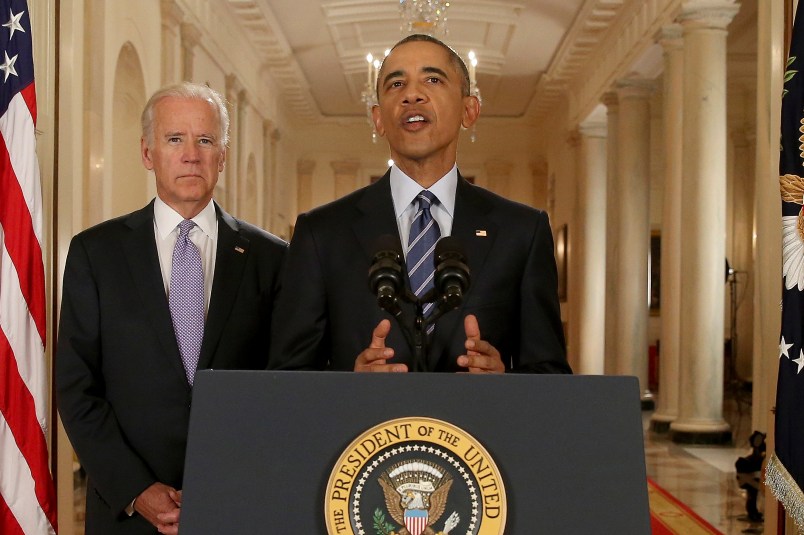The Republican-controlled Congress can still kill President Obama’s Iran deal, but to do so, it faces an uphill battle.
Now that the historic deal, which would lift international sanctions in return for new limits on the Iranian nuclear program, has been announced, Congress has the ability to weigh in on it under the legislation signed by the president in May.
Under the process outlined by the legislation, Obama will report the details of the negotiation to Congress, upon which a 60-day clock will start ticking for Congress to act. It can vote to approve the deal, vote to disapprove it, or simply do nothing. If it votes against the deal, it would have the legal effect of maintaing U.S. sanctions on Iran, which would effectively kill the deal.
Republican opposition to the Iran deal has been fierce and nearly universal. But Obama said Tuesday that he would veto any bill that would block the Iran accord. So Republicans will need veto-proof majorities in each chamber if they want to kill the deal. Obama would have about 12 days to veto a hypothetical motion of disapproval, and Congress then would have 10 days to override the veto. A veto override, especially in the House, seems unlikely.
Republicans have already started to lash out at the deal, and even some key Democrats have expressed caution, such as Sen. Chuck Schumer (D-NY). However, previous efforts to undercut the deal, which has been years in the works, have fallen short of shoring up the two-thirds support required to overcome Obama’s veto. For instance, a bill to place new sanctions on Iran if negotiators blew past the June 30 deadline failed to advanced, despite having bipartisan support.
To build a veto-proof majority in the Senate, Republicans would need a dozen Democrats to join their ranks. Even more Democrats would need to join Republicans in the House. And that is assuming that all Republicans would come out against the deal. Some, such as Sen. Bob Corker (R-TN), chair of the Senate Foreign Relations Committee, have stopped short of fully condemning Tuesday’s announcement.
“I want to read the agreement in detail and fully understand it, but I begin from a place of deep skepticism that the deal actually meets the goal of preventing Iran from obtaining a nuclear weapon,” Corker said in a statement.







The GOP, by and large is living in the world described by Russian diplomat Vladimir Lukin:
From an article by Max Fisher:
That law was written and passed by republicons in both houses over White House objections. With out it the deal would have gone to the Senate for ratification. Now they have to come up with 2/3s majorities or it’s a done deal.
“you can eat me if you want Brier Fox but whatever you do please please don’t throw me into that brier patch”
So once again the President wins yet ANOTHER battle of wits against unarmed opponents.
Maybe they’ll read it this time.